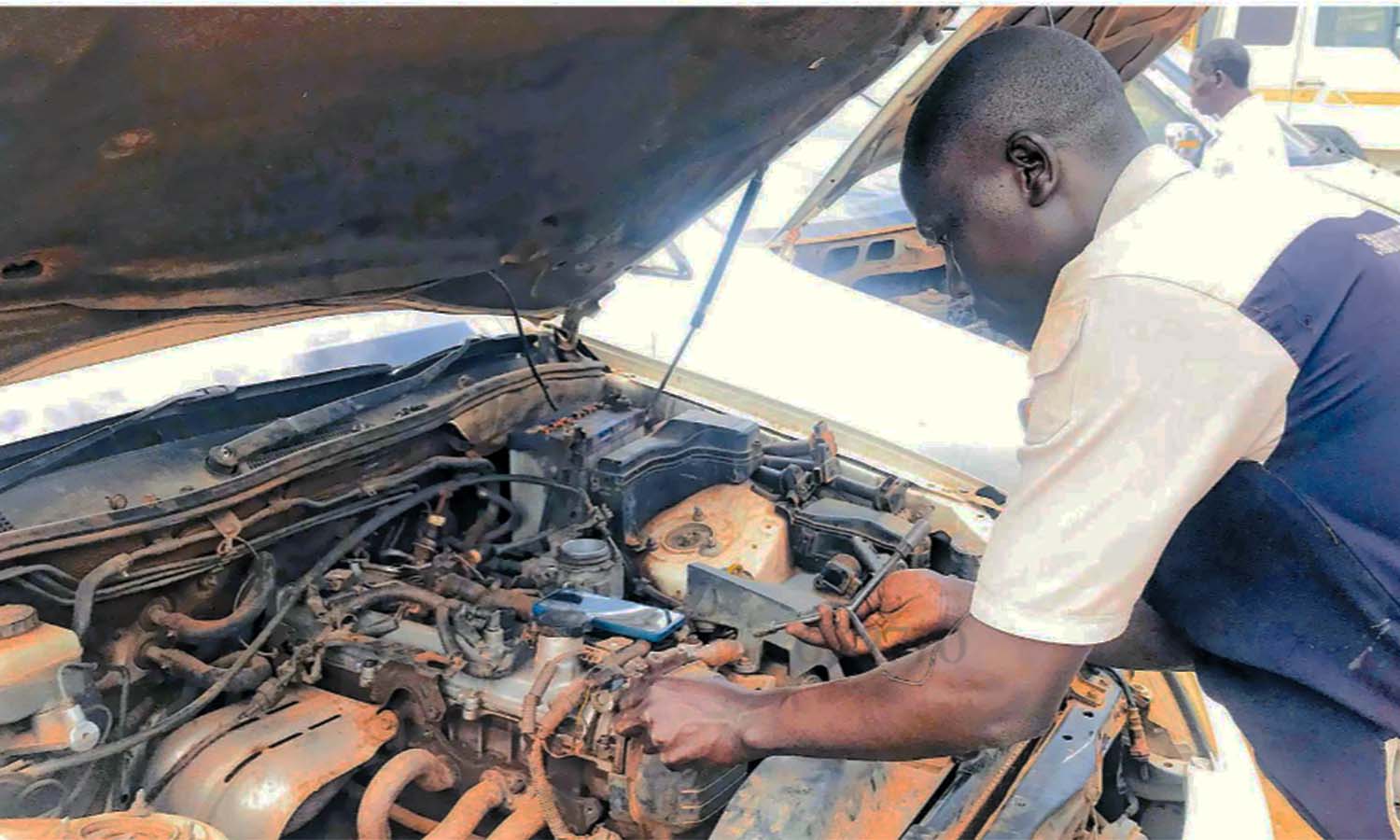Prime
New rental income tax sparks uproar

What you need to know:
Tenants fear that they will be kicked out of business after landlords increase rent.
Property owners and tenants are up in arms against lawmakers for imposing 25 per cent rental income tax, effective July 1.
Dozens of landlords and tenants interviewed accused members of the 10th Parliament, whose term expires next week, of not consulting them as voters and real estate stakeholders.
The new levy is likely to result in increased rent as property owners will pass the cost onto tenants, who will desert commercial and residential buildings.
Other landlords argue that the tax will discourage investment in housing, but it is particularly unwelcome because Covid-19 disruptions reduced demand for rentals.
The Members of Parliament (MPs) on Monday amended the Income Tax Amendment Bill and introduced a levy obliging owners of rental premises to pay 25 per cent of their rental income as tax to government.
Some lawmakers, concerned about the distortions the tax would cause to the real estate sector, opposed the proposal, but they were defeated.
The MPs also approved new taxes on fish maw, tobacco/cigarettes and minerals.
Mr Mark Serubega, a landlord in Kakumiro Town Council, Kakumiro District, says the tax increment will automatically leave him with the option of increasing rent.
“We already face a tax increment on fuel and when tax on rental income is increased, we also increase the rental fee,” he says.
He, however, fears that this will affect people’s businesses and is likely to drive some entrepreneurs out of the city centre.
“Tenants will start running away from our houses because of high rent fees and go to rural areas,” Mr Serubega added.
Mr Emmanuel Muyanja, who operates a salon at one of the main streets in town, says the tax will kick out small-scale enterprises from operations because when a landlord is taxed, the tenant bears the burden.
“We are already grappling with rent fees after several months of lockdown and now the government is here with this tax. We will look for other things to do and leave town. I rent where I stay and also rent this place where I’m operating a salon,” Mr Muyanja says.
In Fort Portal City, Ms Lucy Kabahinda, a tenant, says she will leave town and go to the village for other business if the landlord increases rent.
“I was hearing that Parliament passed that Bill and our leaders did not consult us. We are still affected by Covid-19 and many of our businesses were affected and had hoped the government would first give us some two years [tax waiver],” she says.
In Soroti, property owners are against the Bill, saying it is a deliberate move by the government to exploit citizens and deprive them of their rights to ownership of property in the real estate business.
Ms Harriet Muteteri, a land lady in Orwadai Ward, Soroti City West Division, says ground rent and property tax are already a challenge and the 25 per cent tax will deny them a better livelihood.
Mr Derrick Othieno, a landlord in Kigandani Ward, Soroti City East Division, accused the government of bias against property owners, adding that government should revise its policies to favour all citizens.
“It’s not bad for landlords to pay taxes, but the government should understand the pain we go through. By imposing a lot of taxes, the government deprives us of enjoying our benefits for further investments,” Mr Othieno says.
He adds that the taxation policy is discriminatory as it oppresses ordinary people and exempts policy-makers and other top government officials from taxes.
“I wonder why the government would opt to impose such huge taxes on landlords and yet the MPs, who earn millions of shillings, are exempted from any,” Mr Othieno says.
Ms Florence Alupo, a landlady, says government should stops interfering with rent levies.
“Where shall we get the money if the tenants are not paying rent and at the same time the government protects them and gives them three months to stay at no cost?” she asks.
Mr Stephen Opejo, the Cell D chairperson, who is also a landlord, says tenants are usually humble for the first three months, but become stubborn during the subsequent months.
In Kabale, Mr Richard Muhanguzi, the former Kabale Municipal Council speaker, who owns property in Kabale Town, says the 25 per cent rental tax will lead Ugandans to losing their properties to Uganda Revenue Authority (URA) because paying rent upcountry is not a reliable business.
He proposes that the government should stop the implementation of the rental tax because Ugandans are already suffocated by several indirect taxes.
Real estate dealer speaks out
Mr Vincent Magandaazi, the director Maga Property Solutions Ltd, said the hiked tax might trigger the flight of tenants from rentals.
“Even before the 25 per cent increment proposal, we were already paying 6-10 per cent rental income tax to Kampala Capital City Authority and municipal councils and up to 30 per cent tax to Uganda Revenue Authority. The 25 per cent tax will make [housing] far too expensive to handle,” Mr Magandaazi said.
He added: “Most developers pick loans and invest in property as income source during retirement and wiping away potential earning through exorbitant levies is counter-productive.”
Mr Magandaazi said it could take a person who invests Shs1b into real estate up to 20 years to gain from the investment if they charge Shs6m monthly rent (Shs72m annually) and refurbishment expenses.
In Mbale City, Mr Pius Madoi, a landlord in Link Cell in Mbale City, describes the taxes as ‘inhuman’.
“This is cruel and I don’t think we can support that. First, we were not consulted,” he said.
Mr Ibrahim Wamboya, another landlord in Mbale City, says government’s sole intention could be to keep them in poverty.
“We are paying other taxes, including ground rent and now they are introducing other (new) taxes on already overtaxed people,” he says.
Mr Joan Nagudi, a tenant and a shop attendant on Republic Street in Mbale City, says the landlords will have to increase rent in retaliation.
“At the end, it’s us (the tenants) who will pay heavily. The government should be considerate,” she says.
In Arua, Ms Salima Aisha, a landlady in Oli Cell in Arua Central Division, says: “Unfortunately, I will increase the rent for the tenants in January because of the tax. It was not my plan to do so but this tax increment will push me to do so.”
She adds: “Why should the government increase rental tax yet it is our only source of income? How will we alleviate poverty when the little money we are getting is also taken away from us by the rich?”
In Mbarara City, Mr Aggrey Bushoborozi, a tenant, says: “I had business on High Street (Mbarara City) and was paying Shs800,000 per month; however, the landlord increased it to Shs1m and I shifted to Markhan Sing Street with rent of Shs500,000, but they now want Shs800,000.”
Mr Bushoborozi says the reasons landlords give for increasing rent is because of taxes and following the new tax, he will shift and operate in the outskirts, which he fears might push him out of business.
Mr Yeko Charles, a landlord in Jinja City, says the new tax will affect them but the tenants will suffer more.

“When fuel prices skyrocket, drivers increase transport fares; so even in the new income Tax Amendment Bill, we shall increase rental fees and the burden will be on tenants,’’ he says.
Ms Aisha Namawejje, a tenant at one of the commercial buildings in Jinja City, says the new tax will greatly affect them because landlords will put the burden on them.
“We are currently in a financial crisis because of Covid-19. Our businesses were greatly affected and our income reduced. Government is indirectly kicking us out of business …,’’ she says.
Mr Joseph Kintu, a tenant in Walukuba-Masese Division in Jinja City, says he has no option but to pay the landlords their rent because taxes on their buildings have also been increased.
He, however, asks them not to overcharge.
In Busia District, landlords and tenants have branded the new income tax amendment Bill that was endorsed by Parliament as ‘bad tax’.
Mr Godfrey Egessa Barasa, who owns the Barasa Mabachi Mall in Busia Town, says the Bill was rushed and increases the tax burden on the landlords.
“It should have first been discussed by the stakeholders,” he says.
Mr Wilberforce Lwagula Aremo, a landlord on Custom Road in Busia Town, says the new tax is dangerous to the real estate sector.
“Building materials are expensive and we pay for water, electricity yet we don’t get the services from the government,” Mr Aremo said.
Mr Sulaiman Benjura, a fabric seller in Busia Town, says: “Our businesses are struggling because of the Covid-19 lockdown and any increment in rent might push us out of business”.
Mr Charles Otukei, a tenant at Buwenge Mpya, Northern Division in Kamuli Municipality, says already they have been warned of an impending rental increase and the 25 per cent will likely be extra charged by 35 per cent to meet the costs of staying in rentals.
Monthly rent
Najjeera
1-bedroom, Sh500,000
2-bedrooms, Shs800,000
3-bedrooms, Shs1.2m -1.5m
Ntinda
1-bedroom, Shs500,000 Shs700,000
2-bedrooms, Shs1m-Shs1.2m
3-bedrooms, Shs1.5m-Shs2m
Bukoto
1-bedroom, Shs700,000
2-bedrooms, Shs1.5m-Shs2.5m
3-bedrooms, Shs2m-Shs3m
Bungalow, $1,000 (Shs3.7m)
Munyonyo/Naguru/Nakasero/Bugolobi/Muyenga
1-bedroom, $500-2,000 (Shs1.85m Shs7.4m)
2- bedrooms, $700-2000 (Shs2.6m Shs7.4m) Bungalow, $1,500 - $5,000 (Shs5.6m, Shs18.5m)
Entebbe
1-bedroom, Shs300,000
2-bedroooms, Shs500,000
3-bedrooms, Shs1m
Bungalow, Shs1.5m
Commercial (offices and shops)
$100 (Shs370,000) per square metre
Compiled by Philip Wafula, David Awori, Denis Edema, Tausi Nakato, Sam Opio Caleb, Abubaker Kirunda, Oliver Mukaaya, Al-Mahdi Ssenkabirwa, Fred Ssewajje, Brian Adams Kesiime, Derrick Kissa, Malik Fahad Jjingo, Sylvester Ssemugenyi, Alex Tumuhimbise, Alex Ashaba, Andrew Mugati, George Muron, Rajab Mukombozi, Promise Twinamukye, Robert Muhereza & Emmanuel Arineitwe




